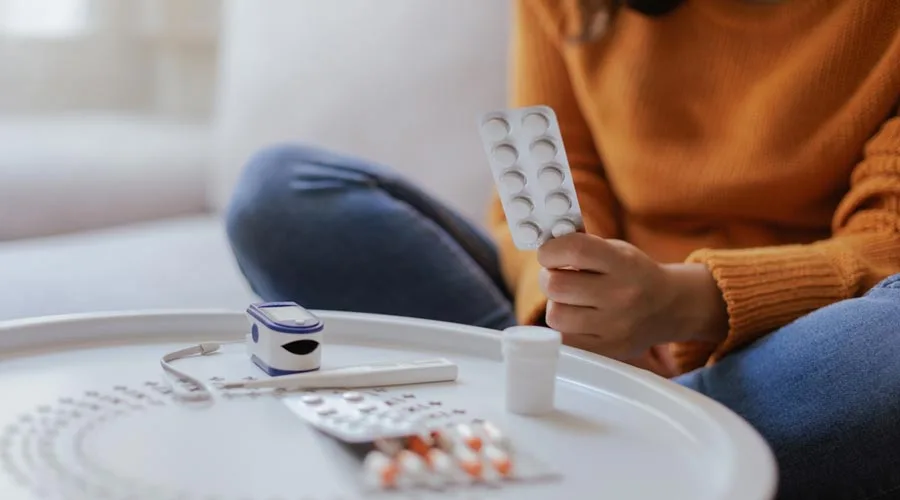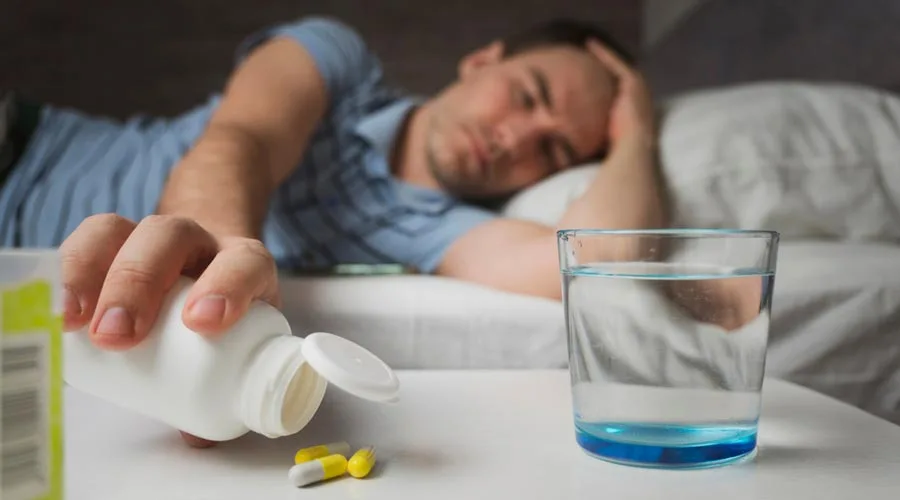Evidence Based Treatment Programs for Dual Diagnosis Clients
With the rapid deployment of dual-diagnosis programs and facilities focusing on co-occurring disorders, the link between mental health and substance abuse is more commonly identified. Recent research suggests that somewhere between 8 and 20% of those with a mental health disorder are either actively battling substance abuse or at risk of developing a substance use disorder.
This statistic, while eye-opening, likely comes with little surprise to those with their fingers on the pulse of the current state of America’s addiction crisis. Unfortunately, these numbers pale in comparison when the data is segmented into those who suffer from PTSD and self medication in some form or another. According to the United States Department of Veterans Affairs, it’s estimated that nearly 45% of those suffering from PTSD simultaneously battle alcohol or drug misuse.
If you or someone you love suffers from post traumatic stress disorder coupled with substance abuse and self medication is taking place, South Shores Detox and Recovery is one of the leading providers of dual diagnosis treatment nationwide. In this article, we highlight the relationship between substance abuse combined with PTSD symptoms and options for treating a traumatic event intertwined with substance use.
Post Traumatic Stress Disorder and Substance Abuse: The Ongoing Battle
Post traumatic stress disorder and alcohol abuse, or drug abuse of any kind, occur at the highest rate when it comes to dual diagnosis disorder – by a landslide. What leads to this frequent occurrence in those who suffer from a traumatic event?
And does the trauma always come first – or are there cases that signify the presence of the substance abuse prior to the PTSD symptoms?
Which Came First: PTSD or Substance Abuse?
There are several diagnostic theories that attempt to clarify the link between PTSD and substance use. The burning question for most professionals is which disorder came first. There are two primary assumptions leading the charge in this area of research.
The Self-Medication Theory
The self-medication theory subscribes to the belief that people develop PTSD before any number of substance abuse disorders. It’s the suffering from the impact of trauma that leads these individuals to self medicate in a desperate search for relief. This is currently the most popular theory in addiction research, and the one with the most logged clinical evidence.
Despite the popularity of the self-medication theory, it’s not the sole diagnosis when it comes to both these disorders. A more recently emerging theory, known as the high-risk hypothesis, believes in the polar opposite.
The High-Risk Hypothesis When It Comes to PTSD and Self Medication
There is evidence backing the potential for the onset of one of many substance use disorders first, ultimately manifesting traumatic mental health disorders in those who struggle with addiction.
The thought behind this diagnosis concludes that the habits and life choices of someone who suffers from one of several types of substance use disorders significantly increase the chances of the user developing mental health conditions associated with PTSD.
An additional theory, albeit far less subscribed to than the previously mentioned, exists as yet another possibility.
Susceptibility Hypothesis
This theory is similar to the high-risk hypothesis but isn’t directly related to the addictive behavior itself. Instead, this theory claims that the increased anxiety and arousal that often follows chronic substance abuse leads to an increased risk of developing PTSD if and when a traumatic event occurs.
Regardless of the order of occurrence, the fact remains that the link between PTSD and substance abuse occurs at a rate that’s three times higher than the average population demographic. In addition, those who already have PTSD are 14 times more likely to self-medicate compared to those without PTSD.
To establish a more intimate knowledge of the relationship between PTSD and substance use, it helps to have a solid foundation built on the understanding of the specifics of PTSD.
Understanding PTSD and the Impact of Trauma On Mental Health
Trauma is one of the leading causes of a number of disorders, almost always requiring some form of mental health services to help a client work through the event at the center of their disorder.
In many cases, the event triggering the PTSD is often so severe, and our trauma response so ingrained, that clients believe their only option is to self-medicate.
Why Do PTSD Patients Self Medicate?
To understand why someone opts to self-medicate through drug or alcohol abuse, you must understand the background of the trauma and the individuals who experience these psychiatric symptoms. Those at the highest risk of developing PTSD include:
- Enrolled service members who have experienced active combat
- Those who were injured in war
- Victims of sexual assault
- Victims of childhood physical or mental abuse
- Victims of severe domestic abuse
- Those who lived through a severe car accident that involved bodily injury or death
- Experiencing the massive impact of the loss of a loved one
In most of the events described above, the action that takes place surrounding these events happens unexpectedly and/or without reason. Most of the time they lead to shock or a major physical or mental injury.
When the human mind and body experience these events, we often black out while the event is taking place. This removes us from the present moment in an attempt to keep the mind and psyche intact.
In spite of the blackout, we still experience these events subconsciously. They often return in the form of a flashback or vivid dreams and images, reminding the victim of the event. These flashbacks cause severe mental distress and ultimately lead to the self-medication that takes place.
Identifying the Primary Symptoms of PTSD
Flashbacks are usually the most common side effect of PTSD. The reimagining of these events can take place at any time without warning. Because of the crippling impact of these flashbacks, most of those who suffer also experience the following:
- Deep depression
- Intense anxiety
- Insomnia
- Difficulty concentrating
- Separation from friends and family
PTSD is enough to shoulder without the addition of a substance use disorder. While it might provide a period of relief for a short time, the impact of addiction only further compounds the side effects of trauma.
Finding the most appropriate treatment options becomes vital to prevent any further complications from either of these disorders. Trauma informed care and dual-diagnosis therapy are currently the gold standard in this area.
Treating Dual Diagnosis Disorder with PTSD
In the past, the lack of viable treatment for co-occurring disorders involving PTSD and drug addiction led to high rates of relapse. However, with advances in modern psychology, the future looks brighter than ever for those who suffer from dual diagnosis disorder. At South Shores, we take a unique, individualized approach to co-occurring disorders, offering our clients a personalized treatment plan unlike any other.
We work hard to thoroughly assess the overall impact of trauma to each client. Through ongoing interviews and counseling, we dive deep into the substance abuse side of the disorder, in an effort to discover how severe the addiction is.
Because this is a multi-faceted approach, the assessment period often requires multiple screenings, interviews, and physical tests. The intensity of this diagnostic work is required to provide the most thorough form of care available, and understanding the intricacies of both disorders is imperative.
5 Forms of Evidence Based Therapies Within Dual Diagnosis
Dual diagnosis therapy isn’t a one-size-fits-all approach to recovery. In some cases, medication assisted treatment is called for, while for others, that is not a concern.
Instead of a single approach, effective dual diagnosis therapy consists of a number of different types of treatments and therapies aimed at providing the highest level of impact and long-term relief for the client. Potential therapeutic modalities include:
- Cognitive Behavioral Therapy: Cognitive behavioral therapy in itself is an intensive form of therapy that’s also made up of several different components. Essentially, dual diagnosis consists of several levels of deep mental reconditioning, with CBT being one of the primary methods. CBT often includes exposure therapy and cognitive restructuring. The latter assists the client in processing the trauma in a way that makes sense. Exposure therapy helps in managing the fear associated with the event, giving the client time to gradually expose themselves to what that specific trauma consists of.
- Education and Awareness: Through talk therapy, group therapy, and psycho-education, clients build awareness and knowledge surrounding PTSD and addiction. This helps you to identify and manage your emotional triggers, helping you cope when these events manifest during a normal day.
- Holistic Options: At South Shores, we cap our dual diagnosis treatment with holistic forms of therapy. We believe this is a powerful addition to the previously mentioned forms of therapy, as it allows clients to deal with the spiritual side of recovery. Throughout the rehabilitation process, many clients still feel lost or unable to find themselves, leading to deeper feelings of depression. Working through holistic forms of treatment allows you to take deep, introspective dives and rediscover who you truly are. Reestablishing these connections manifests a sense of individualism and accomplishment, helping to avoid many of those feelings of being lost or unaware of where you exist in the world.
- Group Therapy: Group therapy helps to develop a sense of belonging and camaraderie during treatment. This, along with a strong support system outside of therapy through friends and family, helps establish a level of accountability that’s often required for continued success.
South Shores Recovery: Breaking Down Barriers Created by Traumatic Experience
If you or someone you love suffers from PTSD combined with a substance abuse disorder, South Shores Detox and Recovery is an excellent choice to start your recovery journey. We have an expert staff consisting of compassionate professionals in the addiction and mental health sectors.
In addition, our beautiful facility is situated on a beautiful plot in Southern California, in close proximity to the oceanside and other naturally beautiful geography. Everything about our facility is dedicated to recovery, and our track record demonstrates just that. Contact a member of admissions today to find out how you can begin healing from PTSD and substance abuse.
References
- https://pubmed.ncbi.nlm.nih.gov/9385000/
- https://www.mayoclinic.org/diseases-conditions/post-traumatic-stress-disorder/symptoms-causes/syc-20355967
- https://www.ncbi.nlm.nih.gov/pmc/articles/PMC3811127/
- https://www.ptsd.va.gov/professional/treat/cooccurring/tx_sud_va.asp
- https://ajp.psychiatryonline.org/doi/10.1176/appi.ajp.158.8.1184





